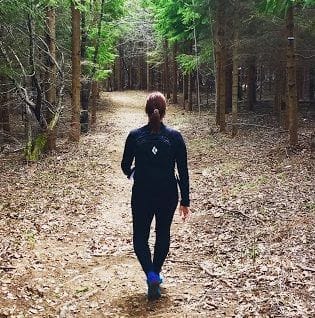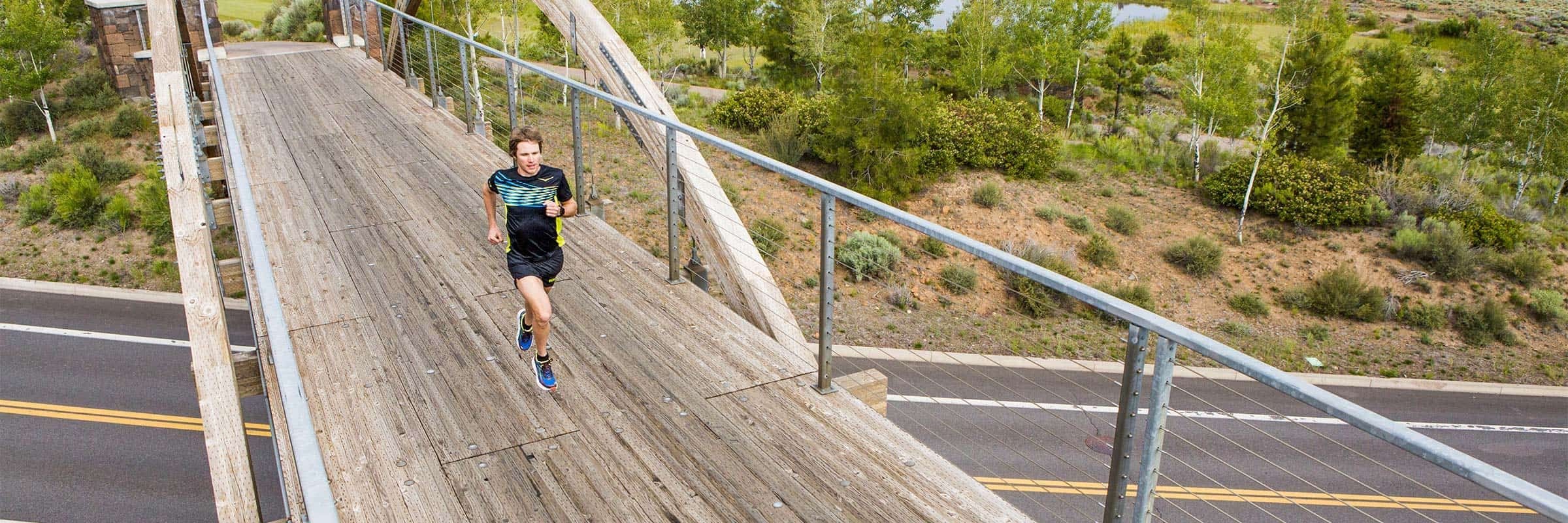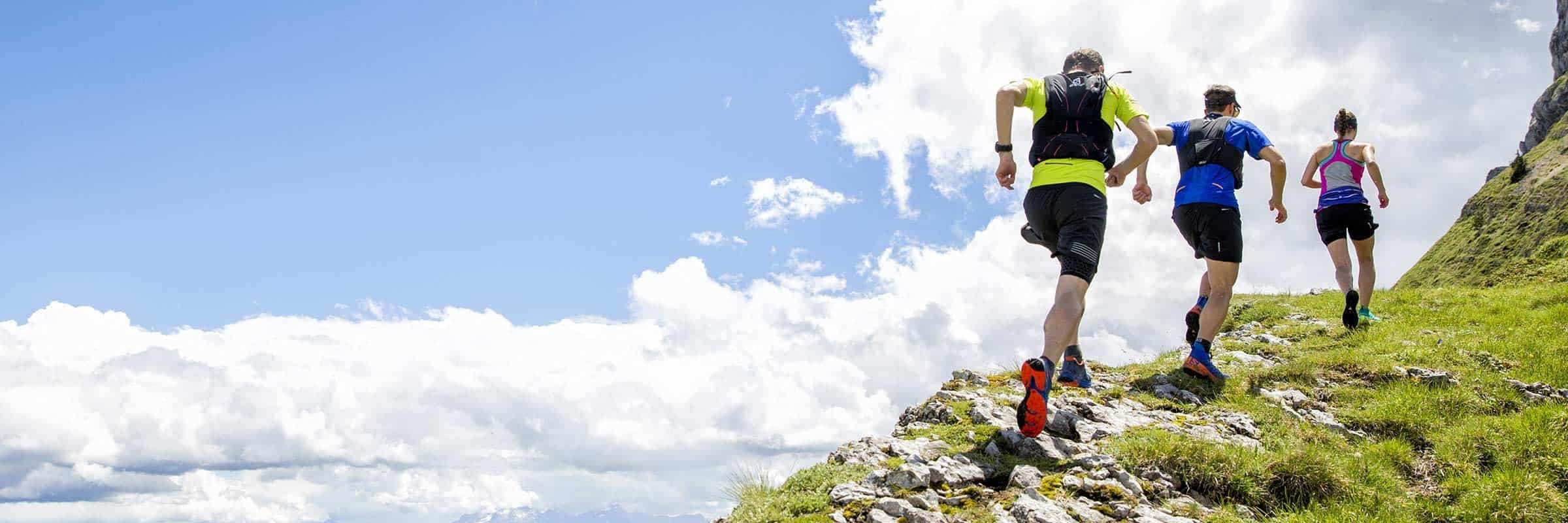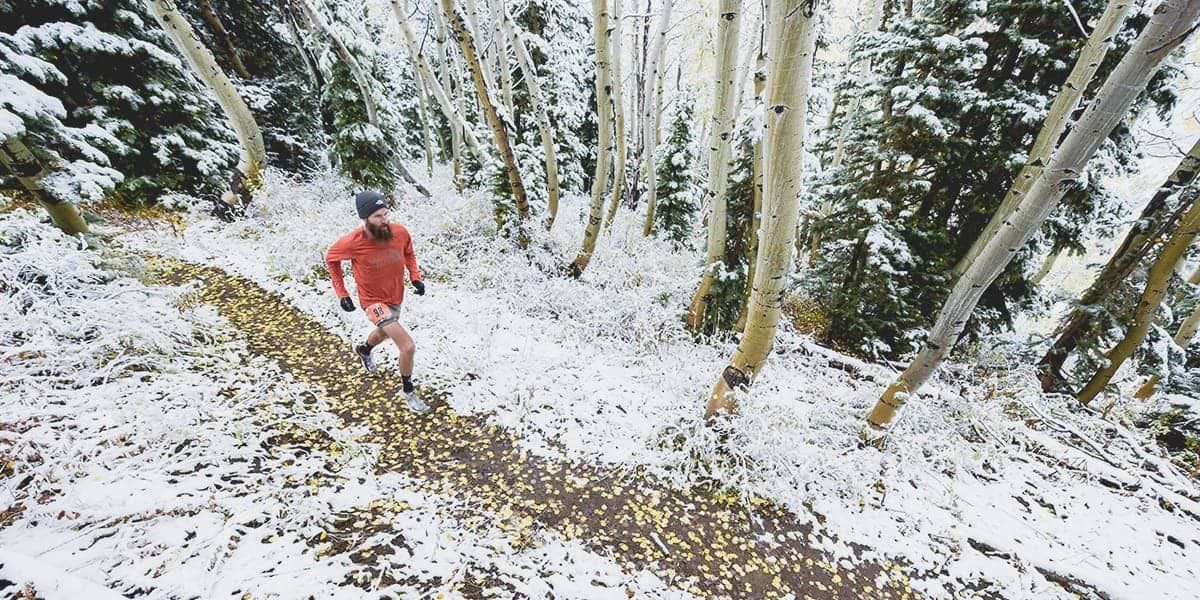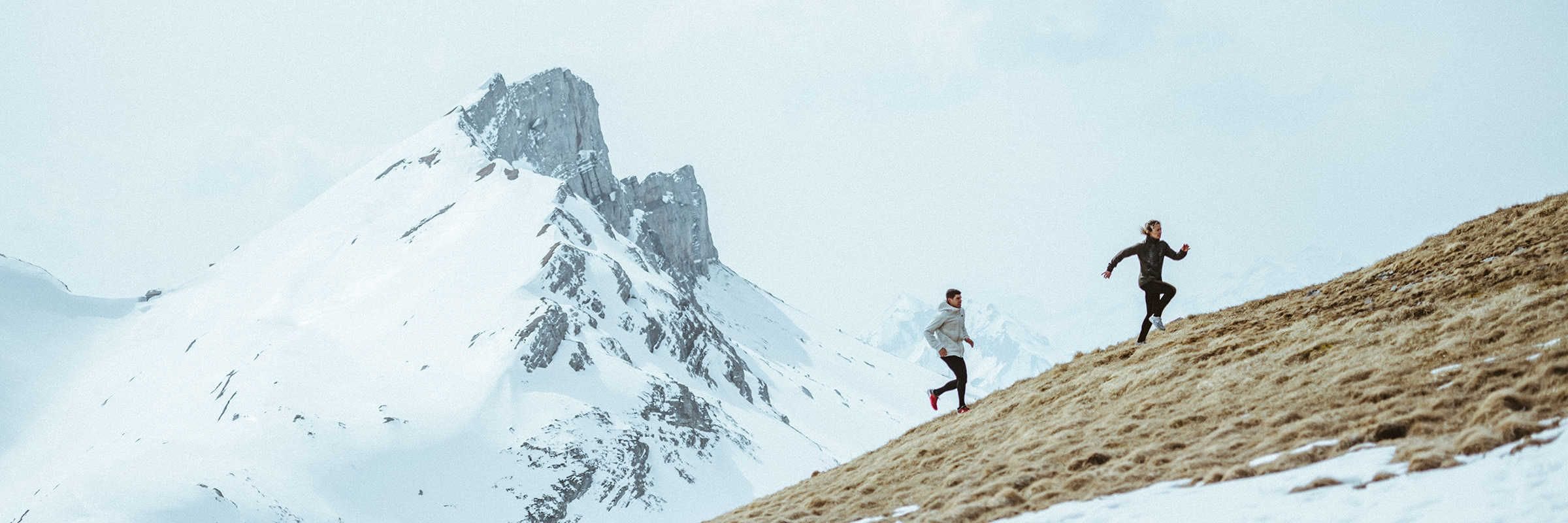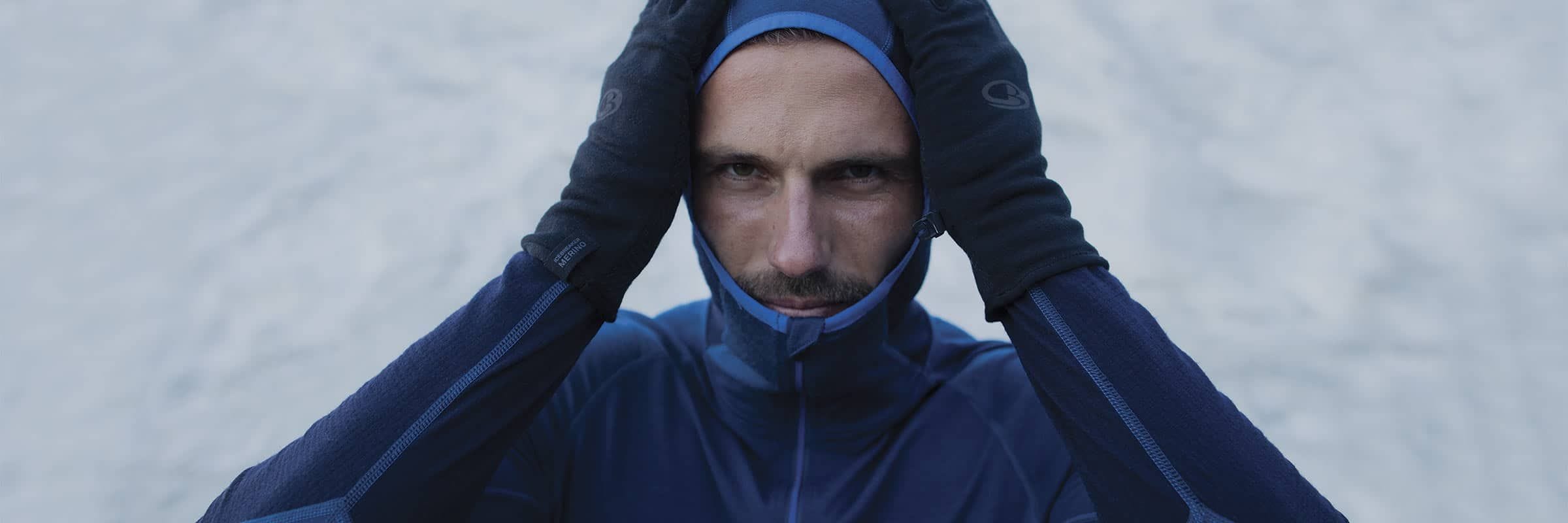This article will give you a quick overview of the top 10 running shoe brands, so you can make an informed choice for your next daily outing. In our opinion, the best brands are the following and we will explain why in the next few lines:
- Altra
- On
- New Balance
- ASICS
- Brooks
- Mizuno
- Hoka
- Saucony
- Adidas
- Salomon
Factors to consider when choosing running shoes
First of all, enthusiasts know that there are several factors to consider when buying a running shoe. It starts with understanding a little about your foot, and what fits it. Here are some examples.
Type of arch
Not all feet are the same. There are actually several types of arches, which will determine how you stand, how you run, and what type of injuries you are more likely to develop. There is the hollow arch, which results in a hollow foot, the so-called “normal” arch, and the collapsed arch in those with flat feet.
Stride type
The arch of your foot influences the way you run, and therefore your stride. There are three types of stride: the neutral or universal stride, the pronator stride and the supinator stride. The universal stride, which is common, is marked by a foot that turns very gently inward when you touch the ground. The pronounced stride, which is just as common or almost so, is marked by a foot that turns quite a bit more inward. This can lead to injury – and will probably require shoes specifically for pronators (with stable support). Finally, the supinator stride is the opposite: the foot tends to collapse outward. Here again, the risk of injury is quite high, and you will need to choose an appropriate shoe.
Type of running shoes
The choice of shoes will depend on the appearance of your arch and your stride. Runners with a universal stride will want a shoe with neutral support, and runners with a pronounced stride will want a shoe with stable support that pulls the foot out. And for those of you with a supinator stride, there are shoes for you too – more on that later.
Best running shoe brands for all types of runners
The following brands offer some of the best running shoes on the market. For men or women, beginners or half-marathon runners, you’ll find the right gear to get you started on the road or trail. Let’s explore some of the brands that top our list.
Altra
American-based Altra offers some of the best running shoes for both road and trail running. What sets it apart from the competition is that each of its models feature zero tilt. What’s a tilt? It’s simply the difference between the height of your heel and the height of your toes in relation to the ground. If your heel is higher than your toes (let’s simplify this by imagining high heels), there is a slope. With Altra, there is no slope.
So it takes some adjustment if you’ve never run in zero slope shoes, but proponents of the exercise argue that it’s a much more natural position for the foot, and it works the right muscles. Please note: this does not mean that there is no support or cushion under the Altra shoes! There is an excellent support, which is normally suitable for runners with a neutral (or universal) stride.
On
On, formerly known as On Running is a brand that we have been seeing more and more in recent years. Its main asset, in addition to comfort, is really the lightness of its running shoes. Putting them on is to have the feeling of walking on a cloud. So much so that it is one of its flagship models: the Cloud shoes, for men and women. Available in neutral or pastel colors, these running shoes have a bouncy sole that provides a good energy return. The price is about average.
New Balance
No need to introduce New Balance, the famous original running shoe. Used as a dad shoe in the last decades, it makes a great comeback on the running scene with a lot of new models, retro or modern, minimalist or with a big cushioning, for every taste. We love its famous Balance Fresh Foam X shoe and its variants, present in almost all international competitions around the world. One of the best shoes for running, to (re)discover.
ASICS
The Japanese New Balance, or almost. ASICS is a range of running shoes with a rather maximalist look, neutral or eclectic colors, and a mainly stable support (even if there are models for runners with a universal stride like the famous Nimbus 25). In general, ASICS running shoes are quite wide, and their old school look (reminiscent of New Balance) is good for all runners on the road. It’s rare to go wrong with the running pros, and we especially like them for long distances.
Brooks
Brooks running shoes are another classic, and one of the best running shoes brands for us. Launched over a hundred years ago, Brooks dominates the running shoe market, and not without reason. The famous Adrenaline GTS, available since 1999 for both men and women, is frankly one of the best road running shoes out there right now. Focused on comfort and excellent support without flab, Brooks is definitely a brand to consider.
Mizuno
Mizuno and its famous Wave line are among the favorites of runners around the world. While some models are easily accessible, others like the famous Wave Neo Ultra are for running enthusiasts who know what they want, and are willing to invest. Mizuno’s patented innovations offer optimal comfort for runners who need neutral support, and the brand has had time to perfect them since its launch in 1906. Today, it focuses on developing performance materials and its eco-friendly practices.
Hoka
We see them, those runners with Hoka running shoes on their feet. Hoka, the champion of maximalism in the running industry. The idea behind the brand was to offer a shoe that would make running downhill easier, both on the trail and on the road. All of its models feature thick outsoles and excellent foot support. One thing is certain: you don’t feel like you’re running directly on the ground. The famous Bondi, the Clifton and the famous Speedgoat for trail running are all excellent shoes for long-distance running.
Saucony
With Saucony running shoes, you get a value that is hard to find in the running industry. With great models like the Kinvara 13 starting at $149.99, it’s easy for beginners to find a shoe that’s solid, reliable, and cut more for casual jogging than long distances. But Saucony also knows about the specialized, with the innovations of the Saucony Ride or the Endorphin, for example, ideal for speed and long road runs. Saucony shoes offers something for every enthusiast, no matter what your level.
adidas
So prevalent in the lifestyle world that you almost forget about their performance in the running world, adidas offers sneakers with incredible momentum and energy return that is simply unimaginable. Very comfortable in the forefoot and constantly renewed to adapt to the market reality, adidas running shoes are perfect for the road, the trail or the dirt.
Salomon
Head out on a hike or trail run, and we dare you not to run into someone wearing Salomon Speedcross. There’s a reason Salomon running shoes are so popular: the brand absolutely knows what it’s doing. It offers several lines of athletic shoes, for both hiking and running, and specializes in trail running shoes with its famous Contagrip sole, which has lugs that bite into difficult terrain for perfect grip. Tip: If you’re new to trail running, or simply looking for a versatile model for all types of terrain, go for Salomon.
Specialized running shoes brands
Trail running shoe brands
We just mentioned it, but Salomon really rules the trail running scene. With GORE-TEX models, there’s no better place to start. Its grippy, lugged Contagrip outsole makes it easy to navigate roots and other trail debris.
Minimalist running shoe brands
A minimalist running shoe brand gets you closer to the feeling of running barefoot, while offering some (minimal) support and protection to your foot. Some of the best minimalist brands include Vibram FiveFingers (all models), Altra (for some models including the famous Escalante) and Arc’teryx.
Brands of running shoes for the marathon
Here are the brands that are most often found in long-distance races like marathons: Brooks, ASICS, Saucony (especially the Endorphin Pro), and New Balance. Of course, there are the adidas and Nike of this world, but their award-winning marathon shoes may not be for every type of runner (read: they are very expensive) and are therefore not the focus of this article.
Brands of running shoes for sprinting
Here, curiously, the answer is similar to the previous point. We say oddly, because a shoe built for speed does not have the same characteristics as one built for distance. One is focused on energy return, the other on durability and long-distance comfort. Whatever: Saucony, New Balance, Hoka and Salomon offer models that are definitely made to go fast. If you like lightness, you’ll be able to go fast with a pair of On.
How to choose the right running shoes
Choosing the right type of running shoes
Even if a shoe excels in every marathon in the world, it may not be right for your foot. Here are some tips:
Understanding fit and sizing
Some running shoes are narrow, some are wide, some are made to be worn with thick socks, and some are not. Pay attention to the fit of the shoe and take the time to try it on at the end of the day – your feet swell as the day goes on, you’ll get the hang of it if you try your shoe on later. Make sure you get the right size: if you’re a little cramped and the fabric doesn’t stretch at all, go up a size and try a thicker bottom.
Consider your foot type and shape
As we saw at the beginning of this article, you should also consider the shape of your foot, the way you walk and your arch. If you neglect this detail, you may not get the most out of your running shoes.
Conclusion
Running is a sport that is accessible to everyone. You don’t need to find the most expensive running shoes on the market, just the one that best suits your needs (whether you’re a beginner or not, for example, or whether you need a waterproof shoe), and the shape of your foot.
